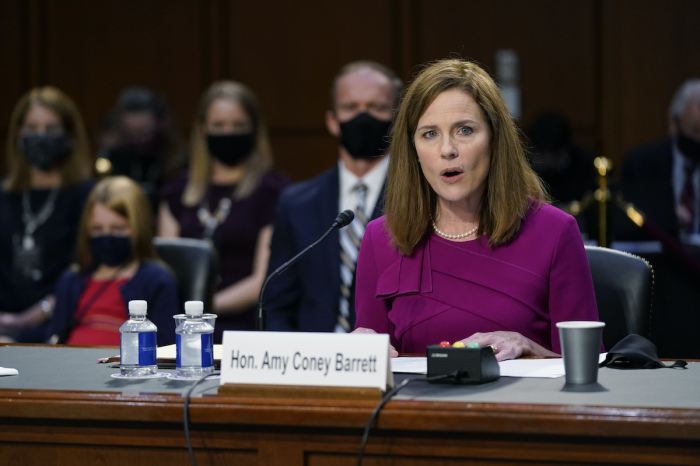Amy Coney Barrett’s final Senate confirmation vote set for Monday evening

After the Senate voted on Sunday to limit debate on President Trump’s Supreme Court appointee, the confirmation vote for Amy Coney Barrett has been set for late Monday.
“The Senate is doing the right thing,” said Majority Leader Mitch McConnell, after the vote limited debate over the appointee to 30 hours. “We are moving this nomination forward and colleagues, by tomorrow night we will have a new member of the United States Supreme Court.”
“Judge Amy Coney Barrett of the U.S. Court of Appeals for the Seventh Circuit is a stellar nominee in every single respect. Her intellectual brilliance is unquestioned. Her command of the law is remarkable. Her integrity is above reproach.”
Democrats opposed the voting. “Judge Barrett’s nomination poses a direct threat to members of the LGBT community,” Sen. Dianne Feinstein, a Democrat from California, said, according to Fox News.
If confirmed, one of the first cases Barrett could hear as a new Supreme Court justice could decide who wins the White House, commented Andrew O’Reilly of Fox News.
“Republicans in the key battleground state of Pennsylvania want the Supreme Court to rule on whether ballots received after Election Day can be counted,” O’Reilly explained. “With the state still very much up for grabs and its 20 Electoral College votes possibly being the key to who the country’s next president is, both Republicans and Democrats are heavily invested in what happens to those late-arriving ballots.”
The vacancy was created after Justice Ruth Bader Ginsburg, a liberal icon, died of metastatic pancreatic cancer at age 87 last month.
“Today it is my honor to nominate one of our nation’s most brilliant and gifted legal minds to the Supreme Court,” Trump said in the White House Rose Garden with Barrett at his side late last month. “She is a woman of unparalleled achievement, towering intellect, sterling credentials and unyielding loyalty to the Constitution.”
Democratic senators and abortion activist groups have argued that Barrett would threaten the legality of abortion as well as Obamacare.
During the confirmation hearing, Barrett said she would not pre-commit or comment on how she would rule in a future case, including Roe v. Wade, stressing that she does not have an agenda. She also said that "Roe is not a super-precedent" unlike Brown v. Board of Education, which "no one questions anymore."
"But that does not mean it should be overruled," she added of Roe.





























